Trump’s tariffs are beginning to unnerve consumers as they eye purchasing new vehicles, forcing some buyers to jump off the fence and race into dealerships, while others have decided to wait out the chaos. Headlight.News has more.
The impact of the Trump administration’s on-again-maybe-off-again tariff policies continues to rattle U.S. buyers fearful of rising prices for new cars and trucks.
While a few manufacturers – including Hyundai, Kia and Mercedes-Benz – have put a temporary hold on prices, that’s no expected to last long. Others have begun warning dealers prices would inevitably rise if the tariffs are allowed to take hold. The president has revised a number of initial sanctions, pausing some trade sanctions, while others remain in place, including tariffs on the imported steel and aluminum and the parts and fully assembled vehicles the auto industry depends on.
That’s sown confusion, not only among automakers but auto buyers unsure whether to rush to showrooms now or sit on the sidelines and wait to see what the White House might do next.
Some consumers rush to buy
As the tariff threats linger, “Consumers nationwide are left grappling with uncertainty and, more troublingly, a declining sense of financial security,” reported Strategic Vision, a California research firm which surveys thousands of car buyers and potential car buyers each year.
According to a new survey by the firm, nearly one-third of near-term vehicle buyers are rushing to finalize purchases before expected tariff hikes. An equally significant segment is holding back, unsure if prices, products, or policis will stabilize, Strategic Visions reported.
The confusion is making it particularly difficult to forecast where the car market will go – something automakers depend on to adjust production planning. For now, Cox Automotive estimated April’s U.S. new-vehicle sales pace is on track to hit a four-year high for the month. But there’s growing concern the good times are coming to an end.
Many consumers are pulling back
Even with dealers around the country running ads warning shoppers to move ahead of tariff-related price hikes, there are also signs consumers are pulling back. Diminishing dealer inventories are already pushing up prices on some models, according to Cox.
There are growing signs that, as prices do rise, consumers will begin to hold back, creating doubts about new vehicles sales in the months ahead. During the Automotive Futures conference in Ann Arbor this week, S&P Global estimated sales will decline to 15.4 million vehicles this year, down 600,000 from 2024, said Guido Vildozo, the firm’s Associate Director of Automotive Consulting. S&P sees the numbers declining again in 2026 to 15 million.
And that’s a relatively forecast. A number of industry leaders, speaking on background at last week’s New York Auto Show, told Headlight.News they’re projecting 2025 will see a 1 million unit year-over-year dip. Meanwhile, Telemetry Research recently issued a warning that full-year auto sales will drop by as much as 1.8 million compared to 2024.
“The research underscores that consumer trust and financial decision-making rely on a stable foundation of security. When that foundation is compromised, consumers become defensive—delaying major purchases or racing to beat volatile changes,” noted Alexander Edwards, Strategic Vision President.
More Industry News
- Trump Pauses Most Tariffs – but Leaves in Place Those Impacting Auto Industry
- Trump Signals Possible U-Turn on China Trade War
- JLR Pauses Exports to U.S., Blames Tariffs
Even Trump supporters balk at tariffs
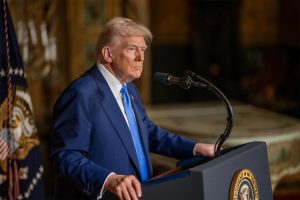
Even Trump voters are expressing concerns about tariff policies, the new Strategic Vision study found.
Those waiting for policy clarity see no path forward until confidence is restored, according to the new Strategic Vision study, Edwards waning that, “Even those generally supportive of the Trump administration are expressing hesitation.”
That was reflected in comments by those being surveyed. “Uncertainty compromises matters,” one of the study’s respondents noted. Another summarized bluntly: “The tariffs will raise my cost of living and possibly cost me my job. There’s absolutely no thought of buying a new vehicle right now.”
Strategic Vision’s findings indicated the uncertainty driven by current tariff policy is doing more harm than good when it comes to consumer behavior. “Artful” negotiations cannot replace the stability consumers need to act with confidence.
Rebuilding trust will require clarity—not just in words, but in policy direction—and a recognition that for the market to bear fruit, the roots of Security and Trust must first be restored. “President Trump’s ability to speak anytime with anyone can be an asset in restoring consumer confidence,” concluded Edwards, “But only when all Americans feel that tariff policy isn’t being ‘made up’ as they go along.”

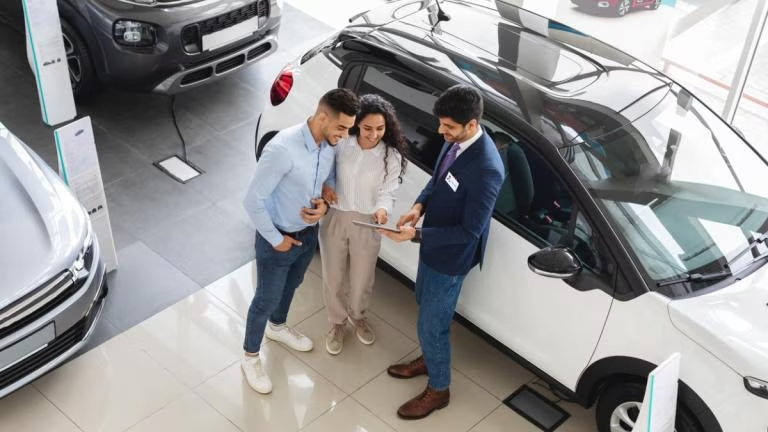
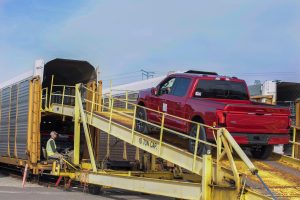

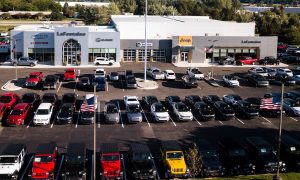

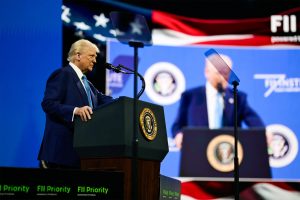

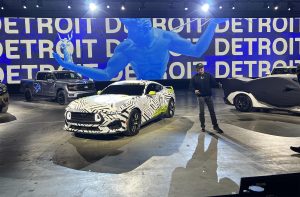

0 Comments